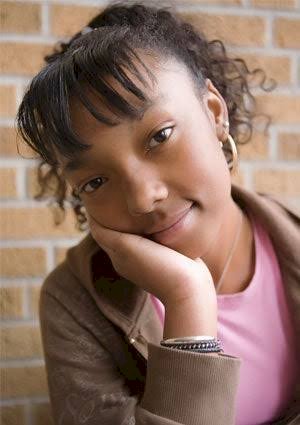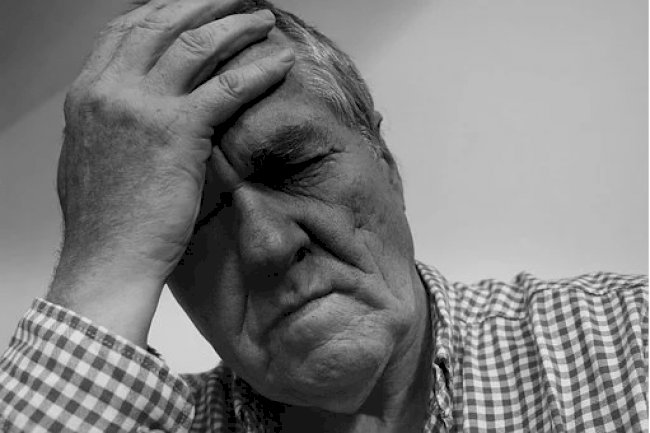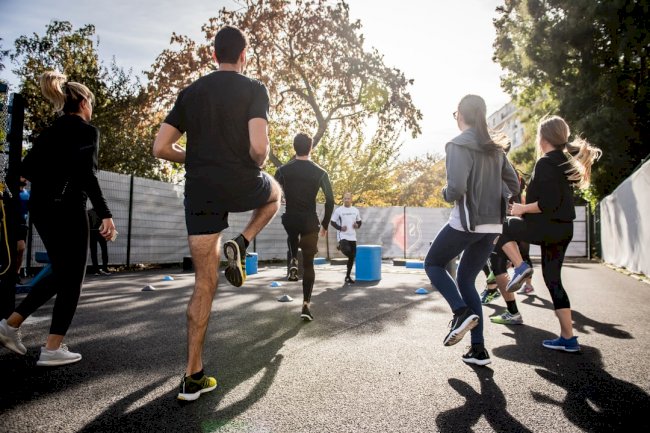Puberty - on becoming a woman
Puberty for the African child can be confusing, intimidating, and most times full of misconceptions, either way, it's a right of passage into adulthood. Here we help you navigate these waters and get you safely and fully equipped for the adult years ahead.

It is no coincidence that children are by nature inquisitive, hence the constant questions they subject you to as a parent. Most especially when they start hitting ages that bring about visible changes in appearance, mood, and emotions. Some children shy away from speaking out, due to a lack of communication with said parent or guardian.
This shouldn't be the case, as at this stage of their life guidance and straightforward communication is essential for understanding what their body is going through at this stage.
Here comes PUBERTY - A stage of life when the body of a child begins to transition into an adult body capable of carrying out sexual reproduction. Puberty is a normal and healthy part of development for young girls and boys.
The African child should be made to understand these changes are normal, completely natural, and are a part of the growing-up process. They would begin to see changes in their body structure, weight, height, enlargement in certain areas such as the genitals, growth of hairs in the public regions, and underarms amongst other changes.
CHANGES ASSOCIATED WITH PUBERTY IN FEMALES
The girl child tends to hit puberty earlier than her male counterpart, their's start between the ages of 10 - 15, it can be earlier or later than what is specified above, depending on body composition and physiology, as slim girls tend to hit puberty later than there overweight peers according to research. Visible changes include, but not limited to are:
-
Weight gain for most girls
-
Enlarged breast, hard to the touch
-
Increased waistline
-
Body odour
-
Underarm hair growth
-
Hair growth in the pubic region
-
Enlarged vulva
-
Getting aroused occasionally
-
Menstruation starts
-
Pimple and acne on the face
Amongst others…
The girl child should be made to understand these changes are completely normal, as it is her bodies right of passage into adulthood.
CHANGES ASSOCIATED WITH PUBERTY IN MALES
The male child hits puberty a little later as opposed to the girl child. His, starts from about 12 years of age on average, of course, there are exceptions to the rule, as his can start a little earlier too. Changes to look out for are as follows, but not limited to include:
-
Wider shoulders
-
Some form of muscular development
-
Underarm hair growth
-
Deepened voice
-
Hair growth in the pubic region
-
The Penis and scrotum increase in size
-
Wet dreams
-
Irregular sexual cravings.
-
Pimple and acne on the face
Amongst others…
For the male it's a coming of age ritual, he is on his way to becoming a man.
EFFECTS OF PUBERTY
THE GIRL CHILD
A major sign of puberty is she starts Menstruation - Which is a woman's monthly bleeding often called a "period". When you menstruate your body discards the monthly buildup of the lining of your uterus (womb). Menstrual blood and tissue flow from your uterus through the small opening in your cervix and pass out of your body through your vagina.
In a nutshell these whole grammar simply means you are ready and fertile to get pregnant. Here education is needed for the girl child to enlighten her on these changes as regards her body, what to expect regarding sex, prevention, safe practises and abstinence.
THE MALE CHILD
At puberty the male child according to science is capable of impregnating a female i.e his sperm cells are viable and ready to fertilise an egg, meaning he is ready to be a father. His penis starts to grow larger than before as well as his scrotum, he becomes harrier than usual, he sweats alot shows some form of defined musculature amongst other physical and physiological changes.
All these changes can be somewhat overwhelming for a teenager. Not to worry, your body is going through changes from childhood to adulthood. Caution still needs to be taken at this stage, as your actions can bring about undesirable results. You can speak to someone older, probably a sibling, parent or someone who can be trusted to give the right counsel.
ROLE AS PARENTS
In adolescence and hitherto puberty a precursor to adulthood, the role of adequate parenting cannot be overlooked, as this in most cases goes a long way in laying solid foundations for the male and female child. Your role as a parent is to educate them on these various changes they are experiencing, answer questions they will surely have. They have to see you as a partner and not a judge, for them to freely communicate and share what they are going through. Your place is to give them assurances and encourage them to be proud, comfortable and make adjustments where necessary as the case may be.
Puberty is simply changes experienced as a child transitions from adolescence to adulthood, don't be overly worried, it happens to everyone and its probably happening to you right now.
What's Your Reaction?





















